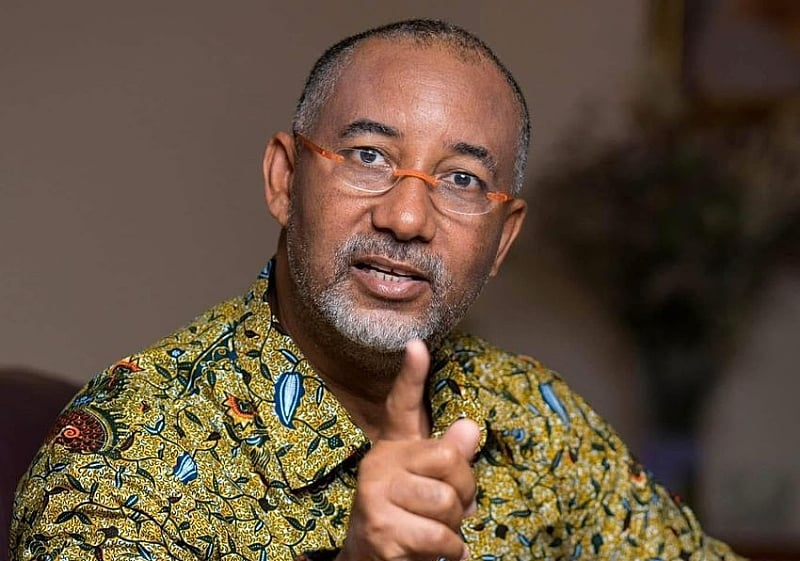Ghana’s prevailing high interest rates are a perplexing anomaly in the face of improving economic indicators. Alex Mould, former Executive Director of Standard Chartered Bank, has launched a pointed critique of the Bank of Ghana’s (BoG) monetary policy, questioning the rationale behind maintaining a 25% Monetary Policy Rate (MPR) when market trends suggest ample liquidity and declining short-term borrowing costs. This stark contrast between the policy rate and market realities raises concerns about the effectiveness and appropriateness of the current monetary stance. The MPR, a crucial signal for investors and economic actors, is intended to manage inflation and influence lending behavior. However, Mould argues that its current level is disconnected from the actual market dynamics, hindering economic growth and access to affordable credit.
Market data provides compelling evidence for Mould’s argument. The 91-day Treasury bill rate hovers around 10.29%, mirroring the cost of short-term government borrowing. The interbank lending rate, a key indicator of liquidity within the banking system, is reportedly below 15%. Furthermore, a recent oversubscribed Treasury bill auction, with bids exceeding the offered amount by 85%, indicates a surplus of liquidity within the banking sector. This excess liquidity, coupled with banks reportedly turning away fixed-term deposits due to their high cost, points towards a disconnect between the BoG’s policy rate and the actual availability of funds within the financial system. Mould highlights the irony of banks overflowing with cash while businesses and consumers struggle to access affordable loans.
The crux of the issue, according to Mould, lies within the calculation of the Ghana Reference Rate (GRR). The GRR serves as a benchmark for lending rates and is derived from a weighted average of the MPR (40%), the 91-day Treasury bill rate (40%), and the interbank rate (20%). The disproportionate influence of the high MPR, despite the lower Treasury bill and interbank rates, keeps the GRR artificially elevated at approximately 23%. This, in turn, translates to persistently high lending rates, stifling investment and economic activity. The GRR’s formula, while intended to provide a stable benchmark, inadvertently perpetuates high borrowing costs due to its reliance on a potentially misaligned MPR.
Mould advocates for a decisive policy shift by the BoG’s Monetary Policy Committee (MPC), urging a reduction of the MPR to below 20% at its next meeting. He emphasizes the positive ripple effects of lower interest rates, including reduced production costs, lower prices, and improved inflation control. With inflation showing a downward trend, recorded at 13.7% in June, Mould believes that a lower MPR would not only stimulate economic growth but also maintain positive real interest rates, further encouraging savings and investment. He contends that the current high MPR is counterproductive, hindering the very economic activity it is intended to support.
Mould’s critique extends beyond the immediate issue of the MPR, encompassing a broader call for policy alignment. He acknowledges the ongoing efforts to revitalize Ghana’s economy, commending Finance Minister Dr. Ato Forson and BoG Governor Dr. Johnson Asiama for their leadership in what he terms the “RESET” promised by former President John Dramani Mahama. This “RESET,” according to Mould, represents a necessary re-evaluation and adjustment of economic policies to better reflect current market realities. He argues that the disconnect between the BoG’s policy rate and the prevailing market conditions undermines these broader economic recovery efforts.
The core of Mould’s argument centers on the abundance of liquidity within Ghana’s financial system. He asserts that the problem is not a lack of funds but a misalignment of policy. The current monetary policy, with its elevated MPR, is failing to transmit the benefits of this liquidity to the real economy. He urges the BoG to harmonize the MPR with market realities, emphasizing the critical importance of accessible and affordable credit for businesses and the overall health of the Ghanaian economy. A reduction in the MPR, he concludes, is not merely a technical adjustment but a crucial step towards unlocking Ghana’s economic potential and ensuring a more robust and inclusive recovery.


